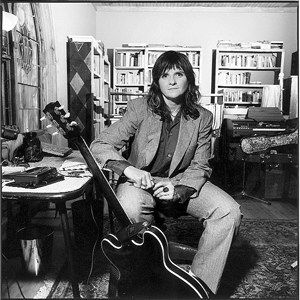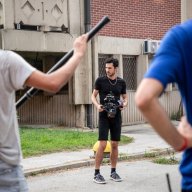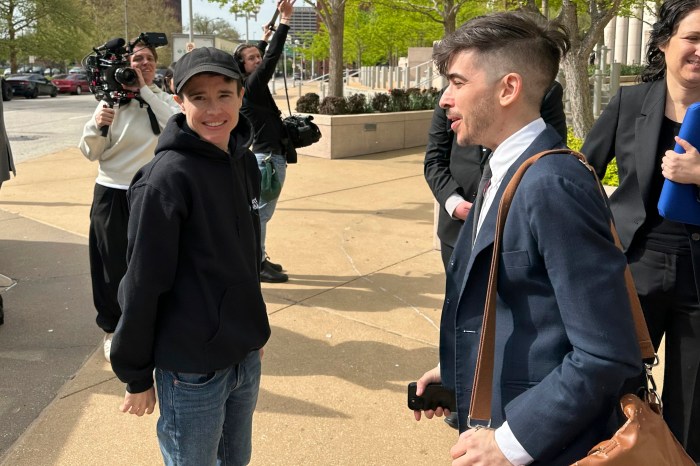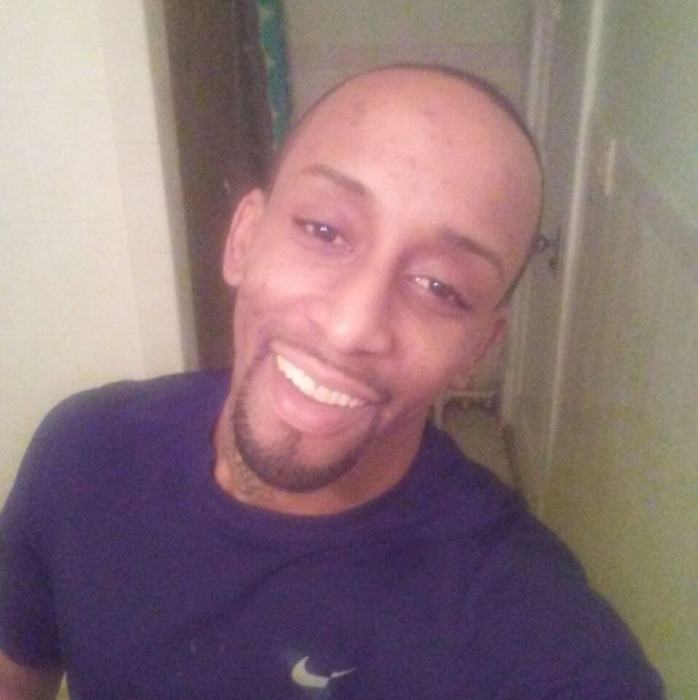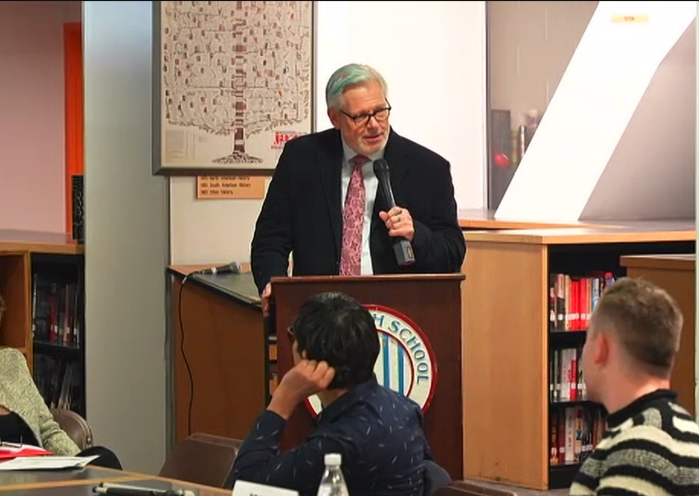Indigo Girl Amy Ray looks back on her Southern high school days
Being but a simple country girl, even if also an internationally known recording artist, Amy Ray prefers her small Southern town when she is not making records and touring as half of the Indigo Girls or doing her solo work, which recently yielded her second album, “Prom.”
“I am not much on cities, but if I have to be in one, New York City is in my top five for sure,” she said. “I know New Yorkers are so used to having a subway system, so it’s no big deal to them, but for me, it’s the greatest freedom to be able to go anywhere just by hopping a train.”
Ray has a long history of performing in New York, in some of its hipper venues.
“The first places I played in New York City were the Knitting Factory, the Bitter End, and CBGB’s,” she recalled. “Also, Emily and I played for tips in Washington Square Park to get up the funds to get our car out of the car park. Come to think of it, I had my car stolen in New York City too, but I got it back a few weeks later, so I felt pretty impressed by that.”
Ray returns to New York on April 19 to the also-cool Bowery Ballroom, hot on the heels of the release of “Prom,” a concept album of songs reflecting on the high school experience, always an excellent source of material for the outcast artist, especially one growing up lesbian.
“High school was much more formative than college for me,” Ray said. “I found it to be a pretty rich territory as far as subject matter goes. I associate it with the way I feel about who I am now: my gender, my activism, my music; starting to play with Emily, teachers who influenced me, mistakes I made, insecurities. A lot of those things really form in high school. You still have the same insecurities about being accepted.”
After her solo debut CD, 2001’s “Stag,” Ray recorded another album with fellow Indigo Girl Emily Saliers, but never stopped thinking about her next independent effort, which she soon realized had a strong theme.
“I was writing songs, and they were all fitting into a theme, and when I realized that, I started molding it to be cohesive,” she explained. “There’s songs on there that aren’t part of that theme, but had a feel to them, so that the spiritually, they felt in line with the rest of the album, with that young, rebellious kind of spirit.”
The song “Driver’s Education,” Ray said, is told from her current point of view, but looking back to high school.
“It’s a love song,” she said, “and I’m writing it to someone I’m with now, who I’m saying I’m trying to explain how I got where I am. And I wish I knew where you were, what you were doing during this time.”
“Put it Out For Good” was inspired by seeing kids hanging out in her hometown today.
“Oh, it’s the same group of alienated teenagers,” she said. “The clothes change a little bit, but nothing really changes. We’re still hanging out on the sidewalk. My song ‘Rural Faggot’ is specifically about someone who is of high school age, and what they’re going through in their formative years. What it means and figuring out what you are, after you’ve been denying it through early puberty. So, I’m dealing with a lot of stuff around gender and identity, and high school seems to be a time when we’re so open at the beginning, we’re sort of still open, then not much time goes by, and all of a sudden everything starts shifting.”
In some ways, said Ray, coming out is easier for today’s teens, at least in terms of having the language to understand how they feel.
“When I was in high school, I fell in love with a woman my senior year, but I didn’t know what that meant,” she said. “I didn’t have any articulation about gender or being queer, or being political in the greater world beyond being class president and organizing fund-raisers in my community. Now, kids know what gay is, depending on where you live, but even in my rural area, they really are aware of language in a way that we weren’t in high school. It’s still a lot for them to deal with. I didn’t really know what it meant, but it was a very organic experience for me. Now, you have you all this judgment and trial and tribulation and ‘What do I do?’ and ‘What does it mean?’ There’s still a lot on the negative side. On the positive side, there’s a way to talk about it now. I think the media has helped. There’s just a wide-open Internet world, so you can find information, music. That’s also part of the struggle, because there’s the danger of over-stimulus. It’s still got to be hard to figure out what you are.”
Ray, whose solo work is rockier—to the point of punk—than her Indigo work, put together a group of solid musicians to help her pull “Prom” together, including native New Yorker drummer Kate Schellenbach (ex-Luscious Jackson, ex-Beastie Boys).
“Kate’s gotten even better,” Ray said. “I’ve seen her playing over the years, and her versatility grow. She was jamming off and on with [ex-Team Dresch] Jody Bleyle, and they called me and were like ‘Come out and play! Let’s make a record together!’”
Ray also pulled in members of the Birmingham, Alabama, band 1945 and others including Michelle Malone, Danielle Howle and Donna Dresch for “Prom,” recording when she had a few days off from touring with the Indigo Girls. The group laid down a song or two as they all had the time in Birmingham or Los Angeles or Athens, Georgia.
Ray will tour the East and West Coasts this spring, and “do the middle of the U.S.” in September, spending the summer touring with Indigo Girls. She’s already started working on songs for the next record with Saliers, which is due out next January. And always, she keeps up with her political and community-organizing work. Her record label, Daemon, serves as a launching pad for artists and groups she believes in and wants to work with.
“We’re also going to do some more ‘Honor the Earth’ shows,” she said. “And do some benefits around solar power. I’m going to Chiapas [Mexico] with a delegation of indigenous Hispanic women, and some non-indigenous women, and we’re going to study what’s going on down there politically, agricultural stuff, really looking forward to that.”
But wherever Ray’s career and interests lead her, she always returns to the South, which many in New York might consider a difficult place to live for a person with her politics.
“I actually find it to be really rich in every way,” she said. “I live in an area that’s really rural and it can be lonely politically. Very conservative. But there’s a small group of people that are working for change, inspiring to see that happen. And for me it’s really about my landscape, and the flora and the fauna, and the way the air feels, and the way the dirt feels. I couldn’t really live anywhere else. Politically, it would be great if things were really progressive. But it’s my home, and there’s a lot of people where I live, people who don’t see eye-to-eye, but I really like them as people, I don’t really feel as judgmental, I don’t defend their stance on gay rights or racism or class, but I defend their value as human beings. So it’s very hard for me when someone from another part of the country disses the South, or talks about how backwards it is, or how hard it is to be there. There’s even good people that I agree with, not all just fighting and trying to protect yourself. It’s not all that dramatic all the time.”
Ray recently played for a Brownie troop in her community, and found that what the kids noted most was her age.
“These girls are so little, they’re teeny!” said Ray, who first recorded with Indigo Girls in 1989, but would not say her age. “When I told them how old I was, they flipped out. Their moms were younger than me.”
And yet, a few of them will probably end up identifying with the Indigo Girls and the songs on “Prom” in just a few years.
gaycitynews.com

